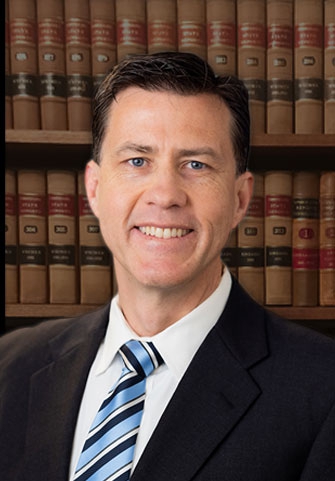The Next-of-Kin Default Rules in Pennsylvania and How a Statement of Contrary Intent Can Override It.

Do you know who has the legal authority to make decisions affecting the funeral and disposition of your body (i.e., burial, cremation, etc.)? Well, if you don't proactively appoint a person to make these decisions, the government has laws that appoint that person for you. Typically, the responsible party has important decisions to make, including the following:
1. Whether to bury or cremate your body;
2. Whether to follow any religious traditions or cultural customs;
3. Whether to hold a memorial service or a traditional funeral service and if so, where; and
4. Whether to make an anatomical gift by donating your organs for transplant and/or body to science.
In a perfect world, everybody would be part of a loving and harmonious family; however, that is not always the case, which means that decisions like those above can get very messy, especially when there are religious, geographical, cultural or political differences.
Even if you are estranged from your parents or siblings, their status as next-of-kin gives them the right under Pennsylvania law to determine how to dispose of your body. This means that they could bury you when your wish is to be cremated or they could dispose of your body or ashes in a variety of ways instead of honoring your preference to be interred or buried next to your spouse.
If your children don’t agree on how to dispose of your body, the family could find itself embroiled in litigation, which nobody wants to go through during a time of grieving.
So, if you don't want the government to get involved in the process of choosing the person who makes your burial decisions, do not despair! Pennsylvania gives you the right to designate a person to control the disposition of your body, which overrides the next-of-kin’s statutory authority. This is known as a “Statement of Contrary Intent,” which allows you to designate any person you wish to have the right to dispose of your body, as long as that person is an adult and not incapacitated.
This is particularly important if you are:
1. Separated, but not divorced;
2. Not married to your significant other;
3. Estranged from next-of-kin; or
4. You’re aware of the possibility that your next-of-kin will not honor your wishes due to religious, geographical, cultural or political differences.
If you don’t have a Statement of Contrary Intent to override the next-of-kin’s statutory authority, then the person given the right to control the disposition of your body is determined in the following order:
1. Spouse;
2. Children;
3. Parents;
4. Brothers, sisters or their children;
5. Grandparents; and
6. Uncles, aunts, and their children, and grandchildren.
Once you have a Statement of Contrary Intent prepared and signed, we recommend that you notify the person you’ve appointed about this and provide them with a copy of the document so that he or she is prepared to handle your wishes should the need arise in the future.
If you do not want the next Next-of-Kin rules to apply in your case, the attorneys at UTBF can help you prepare a valid Statement of Contrary Intent for any person you wish to have the authority to dispose of your remains.
As always, we are available to answer questions and assist with preparation of a Statement of Contrary Intent form. Please contact our office at (610) 933-8069.
Check out our other great articles throughout this site that more specifically address the different ways to protect and preserve your assets. Click here for more articles!
If you are a PA Resident: Click here to receive the elder law guides.
Worried about the high cost of long-term care. Click here to subscribe to our monthly elder law e-newsletter.
For assistance developing a comprehensive estate plan or nursing home asset protection plan in Pennsylvania, please contact Douglas L. Kaune, Esquire at (610) 933-8069 or email him at [email protected]. Doug’s entire practice is focused on elder law, Medicaid application, estate planning, trust planning, estate administration and protection of clients’ assets from nursing home spending and estate and inheritance taxation. Unruh, Turner, Burke & Frees, P.C. is a full service law firm which has three convenient office locations in Phoenixville, West Chester and Paoli, Pennsylvania. The firm primarily services clients in Chester, Montgomery, Delaware, Philadelphia, Bucks and Berks Counties, but can represent clients throughout Pennsylvania.

